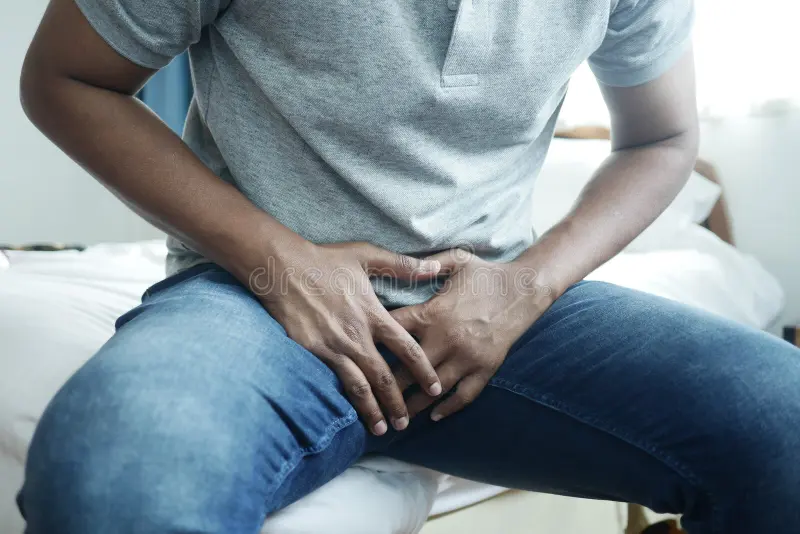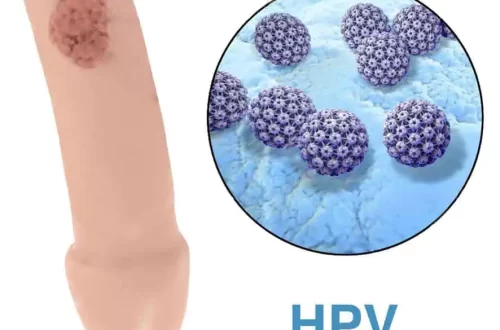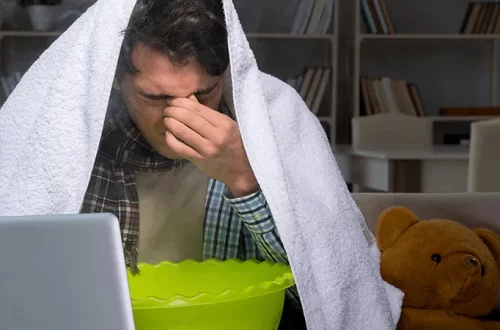Itching in Private Part
Understanding the Uncomfortable Irritation: Experiencing discomfort in your genital area, known as “Itching in Private Part,” can significantly disrupt your daily life and should prompt a visit to your healthcare provider for evaluation and treatment.
This persistent itchiness could signal various underlying issues, including skin conditions like psoriasis or eczema, infections such as yeast infections, or sexually transmitted infections like trichomoniasis.
Fortunately, effective treatments are available to manage or alleviate these symptoms.
Overview
What Constitutes Itchy Genitals?
Itchy genitals refer to the uncomfortable irritation experienced on the skin in the genital region. While occasional itching may be a common experience for most individuals, persistent and disruptive itching warrants medical attention.
Several factors, such as skin conditions, allergic reactions, or irritation from hygiene products like soap, can contribute to itching in and around the pubic area for women or on the penis and scrotum for men.
Recognizing Seriousness
Genital itching typically doesn’t raise alarm unless it meets one or more of the following criteria:
- Persists despite attempts to alleviate it.
- Intensifies to severe discomfort.
- Recurs periodically.
- Accompanied by irregular discharge from the vagina or penis or the presence of a visible rash.
Identifying Risk Factors
Who is Vulnerable to Itchy Genitals?
Itchy genitals can affect individuals of any age or sexual experience, highlighting the indiscriminate nature of this discomfort.
YOU MAY LIKE: Benefits of Cloves to The Vagina
Prevalence
How Common is Itching in Private Part?
Although precise statistics are unavailable, itchy genitals represent a prevalent condition that transcends demographics.
Importantly, experiencing genital itching does not automatically imply the presence of a sexually transmitted infection (STI), emphasizing the need for comprehensive evaluation and diagnosis by a healthcare professional.
Symptoms and Causes: Understanding Itchy Genitals
Identifying the Sensation
What Characterizes Itchy Genitals?
Itchy genitals (or itching in private part) manifest as sensations prompting the urge to scratch the area around the vulva (external part of the vagina), penis, or scrotum.
Occasionally, individuals may also observe accompanying symptoms such as redness, a rash, irregular discharge, or other visible indicators. It’s important to note that experiencing an itchy private area doesn’t always indicate the presence of an infection.
Unveiling the Causes
Why Do Itchy Genitals Occur?
Itchy genitals (itching in private part) can affect anyone and stem from various underlying factors. Some common causes of genital itching include:
- Eczema (atopic dermatitis)
- Dermatitis
- Psoriasis
- Lichen sclerosus
- Lichen simplex chronicus
- Pinworms
- Allergies or allergic reactions
- Skin irritation due to sweating or wearing tight clothing
- Skin irritation from personal hygiene products like soaps, perfumes, and detergents
- Genital herpes
- Genital warts
- Pubic lice (crabs)
- Razor burn from shaving pubic hair
- Vulvar cancer (rare)
In individuals with a uterus, exclusive causes of vaginal itch include:
- Yeast infection
- Bacterial vaginosis
- Trichomoniasis (trich)
- Chlamydia
- Gonorrhea
- Menopause, genitourinary symptoms of menopause (GSM), or other hormonal changes
For individuals with a penis, specific causes of genital itch include:
- Jock itch
In many instances, genital itching due to irritation may resolve spontaneously by discontinuing the use of irritants such as lotions or soaps.
However, other causes of itching may necessitate more comprehensive treatment. If you experience persistent genital itchiness, it’s advisable to seek guidance from your healthcare provider for appropriate evaluation and management.
What Worsens Itching in Private Part?
Sweating, wearing tight clothing, and exposure to substances like soap, detergent, and over-the-counter feminine products (such as anti-itch products) can exacerbate itchy genitals, especially if a skin condition is responsible for the irritation.
Identifying STIs Associated with Itchiness
Which STIs Cause Itchy Genitals?
Several sexually transmitted infections (STIs) can lead to itchy genitals, including:
- Trichomoniasis
- Genital herpes
- Genital warts
- Chlamydia
- Gonorrhea
Exploring Non-STI Causes of Itchiness
Why Do I Experience Itchiness Without an STI?
It’s essential to recognize that STIs are not the sole culprits behind genital itching. More commonly, skin conditions or irritations contribute to itchiness in the private parts. Patients with conditions like psoriasis and eczema may experience itching in their genital area.
Diagnosis and Evaluation
What Tests Are Conducted for Diagnosing Itchy Genitals?
Itchy genitals can manifest as a symptom of various conditions and infections. Your healthcare provider may conduct a thorough examination, evaluating aspects such as:
- Skin color (red, white, brown)
- Changes in skin texture (thickening, thinning)
- Surface alterations in the skin (dryness, scales, flaking, oozing)
Confirming a diagnosis may require your healthcare provider to obtain a skin sample for microscopic analysis or send it to a laboratory for further testing.
Assessment Questions for Diagnosis
What Inquiries Might Your Healthcare Provider Make?
During your consultation, your healthcare provider may ask specific questions to pinpoint the cause of your genital itchiness, such as:
- The precise location of the itch
- Frequency and intensity of scratching
- Ability to refrain from scratching
- Severity of itchiness and impact on daily life, including sleep disturbances
- History of recent sexual activity or changes in hygiene practices, such as laundry detergents or dryer sheets
SEE ALSO: Remedies For Breast Pain During Breastfeeding
Managing and Treating Itchy Genitals
Medications for Treatment
The treatment approach for itchy genitals hinges on the underlying cause. Here are some common treatments based on specific conditions:
- Eczema: Topical steroid creams may be prescribed.
- Lichen sclerosus and lichen simplex chronicus: Treatment typically involves topical steroids. Phototherapy (light therapy) may be recommended if steroid creams prove ineffective for lichen sclerosus.
- Jock itch or yeast infection: Antifungal medications are often prescribed.
- Lifestyle modifications: Sometimes, simple changes such as altering detergents or increasing underwear changes can alleviate mild genital itching.
Your healthcare provider will assess your condition and recommend the most appropriate treatment plan tailored to your specific needs.
Who Provides Treatment?
In most cases, primary care providers can effectively manage itchy genitals. However, if your condition is severe or does not respond to initial treatment, consulting a dermatologist may be advisable for specialized care.
Prevention Strategies
Reducing the Risk of Itchy Genitals
Preventive measures can significantly reduce the likelihood of experiencing itchy genitals. Here are some general recommendations:
- Maintain genital hygiene by keeping the area clean and dry, using mild soap, and patting the genitals dry after washing.
- Opt for loose, breathable underwear made from natural fibers and change them regularly.
- Ensure thorough drying after bathing or swimming and avoid prolonged periods in wet clothing.
- Practice safe sex to minimize the risk of infections.
- Additional Steps for Individuals with a Vagina:
-
- Wipe from front to back after using the restroom to prevent bacterial transfer.
- Avoid chemical products like douches or feminine hygiene sprays.
- Use moderate amounts of laundry detergent to wash underwear.
- Refrain from using over-the-counter itch blockers.
- Be cautious with vaginal lubricants and consult with a healthcare provider if irritation occurs.
- Avoid trauma to the area, excessive shaving, or scratching.
- Maintain a balanced diet for healthy vaginal bacteria and avoid scented tampons or pads.
- Additional Steps for Individuals with a Penis:
-
- Ensure thorough washing, including under the foreskin if uncircumcised.
- Consider changing underwear before bed if sweating excessively during the day.
Outlook and Prognosis
Duration of Itchy Genitals The duration of itchy genitals varies depending on the underlying cause. For example:
- Conditions like psoriasis may not have a cure but can be managed to alleviate symptoms.
- Infections such as trichomoniasis are curable and typically clear up within about a week with treatment.
Consult your healthcare provider for personalized insights into your condition’s timeline.
Natural Resolution While itchy genitals can resolve on their own, persistent or worsening symptoms warrant medical attention. Mild skin irritation may improve spontaneously, but if symptoms persist or intensify, it could indicate a more serious issue like a sexually transmitted infection requiring prompt treatment.
Living With
Self-Care Practices Managing itchy genitals shouldn’t disrupt your daily life. Here are some self-care strategies to consider:
- Avoid wearing tight clothing.
- Adhere to prescribed medications.
- Shower promptly after sweating.
- Choose gentle soaps and detergents to avoid skin aggravation.
- Follow your healthcare provider’s treatment plan diligently.
- Resist the urge to scratch to prevent exacerbating irritation or causing skin damage.
Seeking Medical Attention Consult your healthcare provider if:
- Genital itching persists or recurs frequently, impacting your quality of life.
- You experience abnormal discharge, burning, swelling, pain, or the presence of lumps or growths in the genital area.
Questions to Ask Your Healthcare Provider
When discussing itchy genitals with your provider, consider asking the following questions:
- What is the underlying cause of my genital itching?
- What treatment approach is best suited for my condition?
- Are there any over-the-counter products I should use?
- What home remedies can I employ to manage genital itching?
- How can I prevent future episodes of genital itching?
- Which products should I avoid to prevent exacerbating symptoms?
Additional Common Questions
Nocturnal Genital Itching Experiencing itchiness in your private parts at night is a common phenomenon. Factors like changes in body temperature, increased blood flow to the skin, and dryness contribute to heightened sensitivity.
Additionally, nighttime relaxation amplifies awareness of itchiness. Consider consulting your healthcare provider, who may recommend bedtime antihistamines to promote restful sleep.

A graduate of Computer Science and Information Management Technology. Diploma – Caregiving, Certificates – Dementia and Diabetes Awareness and Management. A researcher, blogger, songwriter, singer and acoustic guitarist. Born in an environment where natural talents such as healing are imparted at our natural birth. This natural talents of healing is the result of our genetic inheritance and the training from family environment.








